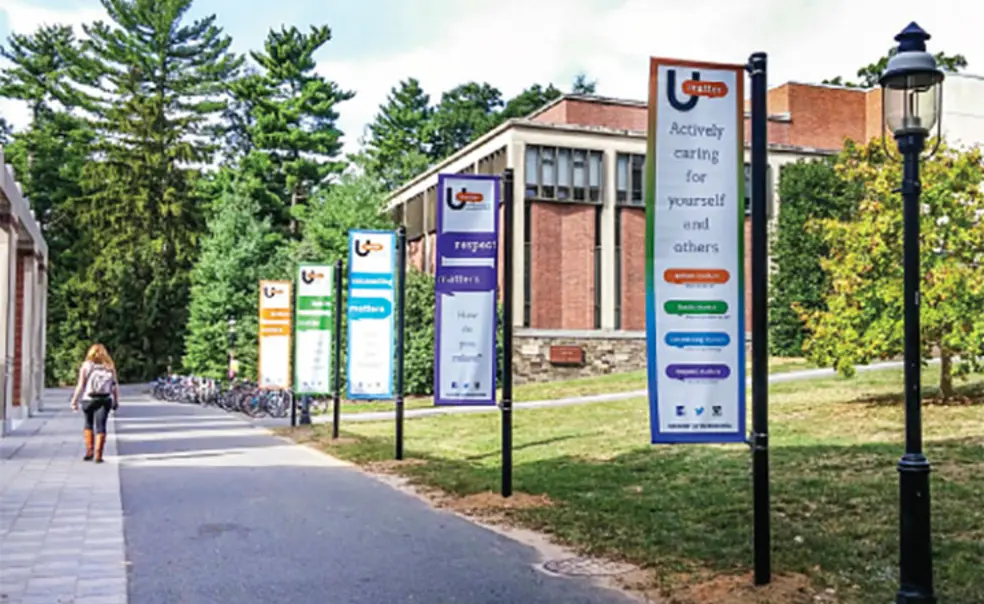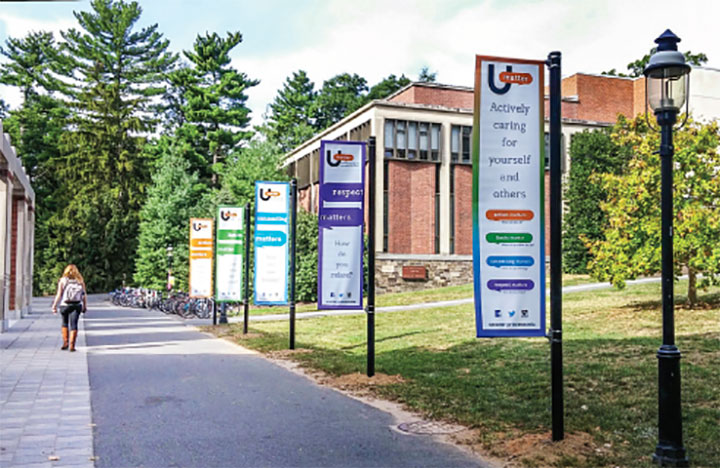New Data about Campus Sexual Assaults
When I travel around the country to meet alumni, they often ask me about my biggest concerns. “What,” they want to know, “keeps you up at night?” These days the answer is all too plain. Like most other college presidents, I worry about campus sexual assault rates and how to keep our students safe.
As you may recall, Princeton’s faculty approved several important amendments to the University’s sexual misconduct disciplinary procedures last fall. The changes were necessary to bring Princeton into compliance with federal statutes as interpreted by the Office for Civil Rights (OCR) of the Department of Education.
At the same time, I appointed a student-faculty committee to examine what the University could do to reduce the incidence of sexual assault and ensure that our disciplinary procedures were as fair, effective, and compassionate as possible. The committee is co-chaired by Deborah Nord, the Woodrow Wilson Professor of Literature, and Michele Minter, the vice provost for institutional equity and diversity.
Last spring, the Nord-Minter committee surveyed Princeton students — including graduate students as well as undergraduates — about their experiences with sexual misconduct in the last academic year (52 percent of our students completed the survey). Other colleges and universities did likewise. We now have the results, and they are heartbreaking.
You can find a summary of Princeton’s statistics, along with a link to the full report, here: www.princeton.edu/main/news/archive/S44/35/32C48/. One of the most disturbing numbers — one that keeps me up at night — is that 8 percent of female undergraduate respondents reported that they had experienced “nonconsensual sexual penetration” — in other words, rape — within the last year.
That number is shocking, as are many of the statistics. Some discussions about these numbers — at Princeton and nationally — have focused on questions about the data. How exactly did survey respondents interpret “nonconsensual”? How do we compare to national averages, or to the Ivy League?
The answer to the last question is that variations are small, and they are hard to interpret. But does it really matter? The only acceptable number of rapes on a college campus is zero. And there is no way to look at the data from our survey without concluding we are too far from that goal.
We need to do better. Much of the national conversation has focused on collegiate disciplinary procedures for sexual assault cases. What standard of proof should apply? Who should investigate? Should the students have legal counsel to represent them?
Disciplinary procedures are important. We must make sure that complaints are taken seriously, that all students are treated fairly, and that the punishment fits the offense. The job is a difficult one. Our deans, investigators, and Title IX officers handle these cases with exceptional care and conscientious judgment. I am proud of the work they do.
Yet, even if disciplinary procedures are handled well, they come too late. We need to change the culture that makes sexual assaults all too common. Alumni understand that point, and they often ask me whether we train students about sexual assault. We do. Entering students must complete an online program about sexual misconduct. Freshman orientation includes a mandatory, and memorable, session on sexual misconduct. Every residential college adviser receives instruction about how to respond to sexual misconduct issues, and the office of Sexual Harassment/Assault Advising, Resources, and Education (SHARE) trains student peers who can answer questions and facilitate access to available resources.
Like other colleges, Princeton is implementing bystander intervention programs. SHARE, led by Director Jackie Deitch-Stackhouse, is working with eating club officers and other campus leaders to increase the number of students who are ready to step in if they see trouble brewing.
With support from the Nord-Minter committee and Vice President for Campus Life W. Rochelle Calhoun, a team of students, faculty, and staff led by University Health Services recently launched a UMatter campaign to help our campus community prevent and address issues pertaining to interpersonal violence, high-risk drinking, and mental health. The program focuses not only on conveying information but also on teaching skills that students can use to help themselves and others. You can learn more about it here: umatter.princeton.edu.
Will these steps alone solve the problem? Almost certainly not. All the evidence we have indicates that sexual assault is a pervasive and deep-seated problem — not just on college campuses, but throughout our society. In 2014, for example, the federal Centers for Disease Control reported that nearly one in five American women had been raped during their lifetimes — and for more than 40 percent of those victims, the first rape occurred before the age of 18.
As one Princeton trustee said to me recently, sexual assault is a public health crisis in America today, and we need to treat it like one. That means, among other things, collecting data and using it to identify what works to prevent this violence. So far, unfortunately, we have no clear answers. The survey results collected at Princeton and elsewhere have, however, revealed the depth of the problem and compelled our community to start talking about it. That conversation is an indispensable first step toward the kind of culture change that we need — change that demands the participation of everyone on the campus.














1 Response
Ken Phillips ’62
10 Years AgoPreventing Sexual Assaults
Reading the President’s Page on “New Data about Campus Sexual Assault” (Nov. 11), I was struck by the emphasis first on disciplinary actions and then on awareness-raising. Both are vitally important, but where is the Honor Code that each student signs that commits him and her to certain behavior? I recall the code against cheating and requiring me to report any others who cheat that was deeply embedded in me in my years at Princeton — and that I think molded behavior better than discipline and awareness-raising.
Why not a code so that every student pledges not to be part of sexual assault and to step in whenever such is occurring?